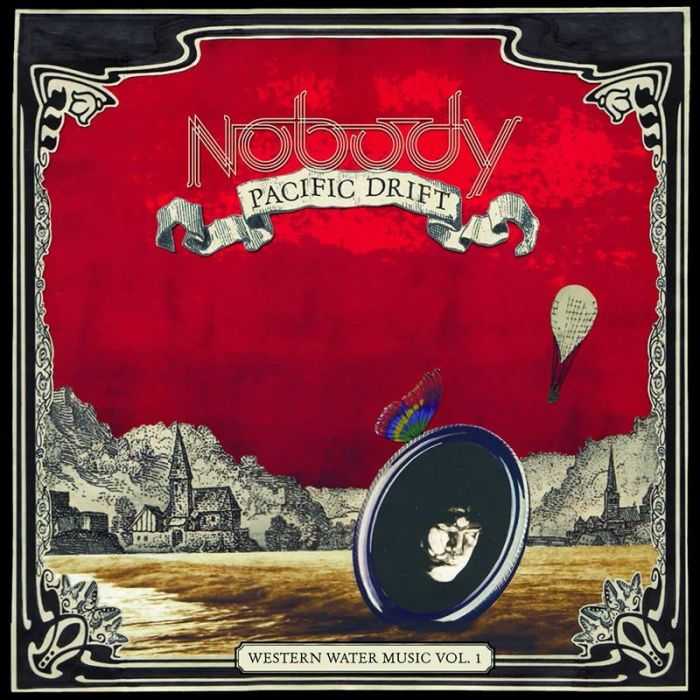Pacific Drift - Western Water Music Vol. 1 by Nobody (Review)

Nobody’s criminally unnoticed Soulmates was a solid work of urban beats, smooth and soulful jazz, and psychedelic rap, working as both a velvety soundtrack to the gritty Los Angeles cityscape and a showcase for the city’s underground hip hop scene. With tracks like the mysterious, smoky “For Those Who Never Dream” and the swirling, hallucinogenic rap “Shades of Orange” (which to this day remains one of my favorite songs), Soulmates established itself as one of the best albums of my then infant CD collection. So when I heard that Nobody (one Elvin Estela) was putting out a new album in late 2003, I was anticipating it to be another winner.
And upon listening to it, my expectations were fulfilled. Nobody has again managed to produce something outstanding. But this time around, he boasts a whole new sound. On Pacific Drift, Nobody’s once gritty urban style has transformed into something much sunnier, with his beats and baps dipped into a slick, golden coating of California sun and 60s soft rock and psychedelia. What comes out is something fun, innovative, and beautiful, and just as enjoyable as its predecessor.
To get a good sampling of what the album’s all about, one needn’t look further than the opening trio of songs. “Coming Up to the Surface…” is a buoyant, playful intro that bounces and kicks around for a little under two minutes before beeping into “White Folding Slowly [Into Blue Remix].” Based around retro keyboards, a hip hop beat, a phased backdrop of sound, and plenty of bleeps and chimes, it’s one of the album’s best examples of Nobody’s ability to make electronica and the music of the 1960s go hand in hand. The slower “The Beaches On Neptune” sounds even more like something out of the 60s, swaying back and forth with its nostalgic melody.
What comes next is one of the album’s real delights, the dreamy “Porpoise Song,” featuring vocals by Chris Gunst of Beachwood Sparks. Originally by The Monkees, Nobody reworks it beautifully, with swells of watery keyboard and vocal samples. Gunst, whose also contributed his voice to Dntel’s “Life Is Full Of Possibilities,” sings perfectly. This is just one of four different covers on the album, and it’s rivalled only by a later track, “Images of April,” as being the best.
“After The Summer Hits” continues with the same sunny sound as the first couple of songs, but “Psilo-Cycling (Trip ‘Round the Block)” takes a much more relaxed and pleasant approach. The song moves along innocently with bicycle bell rings and chimes and the sound of children playing, and it’s one of the prettiest and best cuts on the album. Another great cover song follows suit, the aforementioned “Images Of April.” Originally by Tom Rapp and featuring the vocals of Languis, it’s yet another slice of summery pop perfection, with a honeyed, liquid sample that soars along with buzzing keyboards.
After that, Nobody keeps delivering the goods with songs like the autumnal “What Fall Brings” and the phased out “Electro-Acoustic.” If the album has a weak spot, it would be the penultimate track, “I Won’t Hurt You.” The last of the album’s covers (of The West Coast Pop Art Experimental Band), it features the singing of Jimmy Tamborello of Dntel and Postal Service fame. It would have been wiser for Tamborello to just stick with making music, rather than singing along to it, because he seems uninterested with his half-singing/half-talking. Bringing the song down further is the presence of a silly keyboard melody that sprouts up in the back of the mix during the last verse; it would sound more appropriate when paired with Oompa Loompas, perhaps. But despite these flaws, it’s still a pretty good song, and the positive aspects of it only add to the goodness of the record.
Like Manitoba’s Up in Flames, Nobody’s Pacific Drift is another one of those excellent releases to come out this year that is just bursting at the seams with vibrant and warm colors, sounds, and textures. However, Pacific Drift is perhaps much more blatantly steeped into the ’60s psyche than Manitoba’s album. While I may be overstating the greatness of the album, I personally find it to be one of the year’s best, and can’t wait to hear more Nobody in upcoming years.
Written by Richie DeMaria.